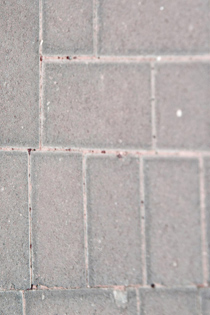Réflexion critique autour de la notion de « cerveau musical ».
Carla Vaucher | 22.10.2014
Des études françaises et canadiennes postulent une spécialisation cérébrale pour la musique et cherchent les zones précises qui l’abriteraient. Prouver cette hypothèse conduirait à faire de la musique une fonction biologique, allant parfois jusqu’à lui accorder un rôle dans l’évolution de l’espèce humaine. À l’aide d’outils théoriques issus des études sociales des sciences et de la médecine, nous tentons de démontrer en quoi cette perspective peut être réductrice et peut contribuer à véhiculer une compréhension de l’individu en tant [...]
Du lieu réticulaire au lieu territorial.
Hélène Noizet | 07.10.2014
The observations that are currently made by geographers about the end of the city and the recent predominance of the urban issue, basically non territorial, echo the studies in the history and archaeology that focus on the Early Middle Ages. These reflexions, often unconsciously shared, give a firm historical and geographical basis to the concept of city. Functioning at the beginning of the Middle Ages as a networking place, the city became a territorial place from the 14th century [...]
Jacques Lévy et Hélène Noizet | 07.10.2014
Ce recueil d’articles est d’abord le résultat d’une rencontre. Des historiens et des archéologues ont interpelé des géographes en leur disant leur intérêt pour la théorie de l’espace et en leur proposant un dialogue avec leurs propres problématiques, visant à la fois à mieux comprendre des sociétés du passé et à construire une intelligence renouvelée [...]
Existe-t-il un espace public indien ?
Carole Lanoix | 30.09.2014
What if India also had public spaces ? These spaces would of course be different to those we encounter in Europe on a daily basis and state as such. While the conception of public spaces, as that of cities, is struggling to assert itself in the cultural context of India, let us question, like the famous Indian poet Attipate Krishnaswami Ramanujan, the existence of an Indian public space. Far from answering a democratic, Western-minded or Eurocentred model, we aim [...]
Marc Antoine Messer | 21.09.2014
L’article interroge le sens et la légitimité de l’emploi du terme « urbanisation » pour décrire les phénomènes territoriaux en cours en Suisse et, plus globalement, en Europe occidentale. En s’écartant de l’idée de ressusciter le débat sur la mort de la ville, il questionne les phénomènes de transformation territoriale actuellement en cours. [...]
L’archéogéographie, une nouvelle discipline au carrefour des spatiotemporalités.
Magali Watteaux | 27.08.2014
Based on her own research and on that of her colleagues, equally archaeogeographers, the author wishes to outline the position and ideas of a new discipline, Archaeogeography, by showing its originality in relation to agrarian and rural Geography and historical Geography. This paper therefore starts by pointing the differences and commonalities between Archeogeography and ancient and modern Geography. In a second step, it discusses the specificities of Archeogeography in relation to other geohistorical disciplines or approaches. Finally, the author [...]
Léopold Lucas | 22.08.2014
This short paper argues against the perspective that considers cities’ touristic areas as « bubbles ». Indeed, a large part of research tends to present these areas as enclaves, almost heterotopias ; this point of view implies that tourism goes against local communities by producing ruptures and discontinuities in cities. However, serious consideration shows the limits of such conceptualization, hypothesises that tourism increases the urbanity of cities (by expanding the density and diversity of societal realities that are co-present, [...]
Marion Ernwein | 21.07.2014
This paper aims to assess the role of the visual in more-than-representational geographical research. Indeed, non-representational theories (NRT) are interested in new ways of creatively performing research. Here I focus on the use and limits of video regarding non or more-than-representational theories and research. I conclude by suggesting new research questions and methodological experimentations. [...]
Jacques Lévy et Michel Lussault, 2013. Dictionnaire de la géographie et de l'espace des sociétés. Nouvelle édition. Paris. Belin.
Jacques Lévy et Michel Lussault | 15.07.2014
La nouvelle édition du Dictionnaire de la géographie et de l’espace des sociétés que vous avez entre les mains est pour une bonne part la conséquence du succès de librairie que la première édition a rencontré. Ce résultat a été obtenu sans aucun compromis sur le niveau d’exigence que nous nous étions fixé tant pour [...]
Luc Guillemot | 09.07.2014
Relativism and universalism are two opposite but not antithetical views of the World. Relativism reflects the diversity of cultures and therefore allows to fight ethnocentrism, and makes controversies possible by denying that absolute truth exists in scientific utterances. However, it addresses the realities of the world according to how different they are ; thus it lacks the ability to underscore what these realities have in common. Relativity does not deny relevance to universality when the latter is considered as [...]

